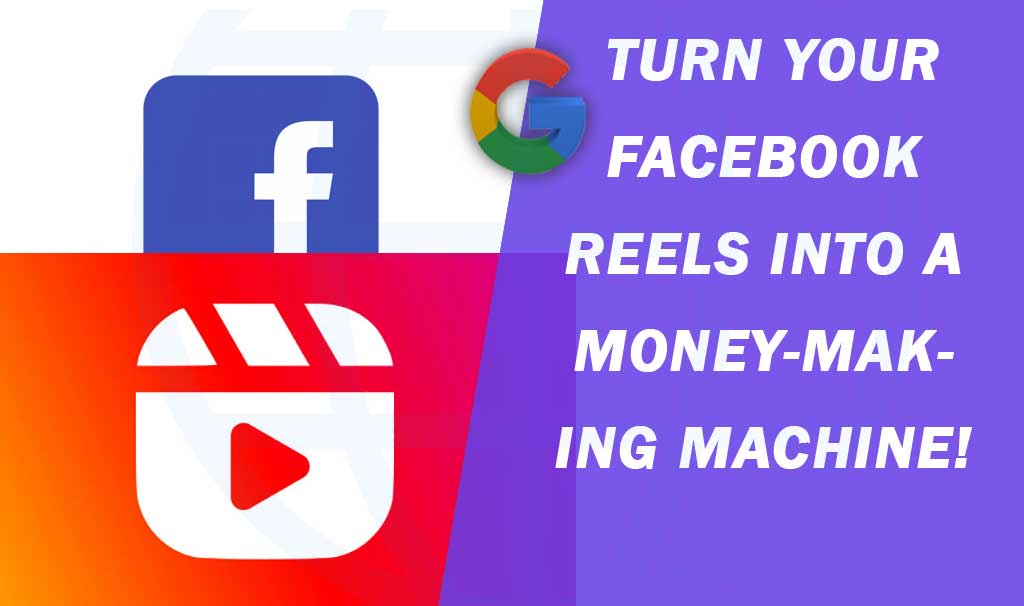
“How to Turn Your Facebook Reels into a Money-Making Machine!”
With the rise of short-form videos, reels have become a popular tool for creators on Facebook to showcase their talent and connect with their audience. As a result, Facebook has introduced several monetization options for creators to earn money from their reels.
Use Overlay Ads to Monetize Reels
One of the ways to monetize your reels on Facebook is by using overlay ads. Overlay ads are short ads that appear on top of your video content. These ads can be in the form of a banner or sticker format and can be customized to match the look and feel of your content.
To use overlay ads, you need to first join the Facebook Partner Monetization Policies and set up your account. Once your account is set up, you can start creating your overlay ads and placing them on your reels.
Use Brand Collabs Manager to Connect with Brands
Another way to monetize your reels on Facebook is by using the Brand Collabs Manager. The Brand Collabs Manager is a platform that connects creators with brands for sponsored content.
As a creator, you can create a portfolio showcasing your work and pitch it to brands for potential collaborations.
To use the Brand Collabs Manager, you need to have at least 10,000 followers on your Facebook page and meet other eligibility criteria set by Facebook. Once you are eligible, you can start creating your portfolio and connecting with brands for sponsored content.
Sell Products Using Facebook Shops
Facebook Shops is another way to monetize your reels on Facebook. Facebook Shops allows you to create an online store within your Facebook page, where you can sell products directly to your audience.
As a creator, you can use your reels to showcase your products and drive sales to your Facebook Shop.
To use Facebook Shops, you need to first set up your online store and link it to your Facebook page. Once your shop is set up, you can start promoting your products on your reels and drive sales to your shop.
Conclusion
In conclusion, there are several ways to monetize your reels on Facebook, including using overlay ads, connecting with brands using the Brand Collabs Manager, and selling products using Facebook Shops.
As a creator, it is important to explore all these options and find the ones that work best for you and your audience. By implementing these monetization strategies, you can turn your reels into a source of income and grow your career as a creator on Facebook.
FAQ
A: Overlay ads are short ads that appear on top of your Facebook reels while they are playing. They can be used to monetize your content by generating revenue based on the number of ad impressions or clicks. To use overlay ads, you need to meet Facebook’s eligibility criteria, which may include having a certain number of followers, generating a specific amount of engagement, and complying with Facebook’s content policies.
A: The Brand Collabs Manager is a tool provided by Facebook that allows creators to connect with brands for sponsored content. To use it, you need to have a Facebook Page and meet certain eligibility criteria, such as having a certain number of followers or generating a specific amount of engagement. You can use the Brand Collabs Manager to create a portfolio showcasing your content, negotiate deals with brands, and track your earnings.
A: Facebook Shops are online storefronts that allow businesses to sell products directly on Facebook and Instagram. You can use Facebook Shops to sell products through your Facebook reels by tagging them in your video or linking to them in the caption. To use Facebook Shops, you need to have a Facebook Page and comply with Facebook’s commerce policies.
A: The eligibility criteria for using the Facebook Partner Monetization Policies and Brand Collabs Manager may vary depending on your location and the type of content you create. Generally, you need to have a Facebook Page, meet certain followers and engagement requirements, and comply with Facebook’s content policies. You may also need to undergo a review process and sign an agreement with Facebook.
A: The amount of money you can make by monetizing your Facebook reels depends on various factors, such as the number of followers you have, the engagement you generate, the type of content you create, and the monetization methods you use. Some creators can earn thousands of dollars per month, while others may earn only a few dollars.
A: Some best practices for creating monetized Facebook reels include understanding your audience and niche, creating high-quality and engaging content, collaborating with other creators or brands, promoting your content on other platforms, and analyzing your performance metrics. It is also important to comply with Facebook’s content policies and disclose any sponsored content or affiliate links.
A: When monetizing your Facebook reels, you should keep in mind legal and ethical considerations, such as complying with advertising laws and regulations, disclosing any sponsored content or affiliate links, respecting intellectual property rights, and avoiding fraudulent or misleading practices. You should also be transparent with your followers and maintain a positive reputation as a creator.
A: To track your monetization performance and optimize your strategy for better results, you can use various metrics and analytics tools provided by Facebook or third-party platforms. These may include measuring your ad revenue, engagement rate, follower growth, and conversion rate. You can also experiment with different monetization methods and adjust your content strategy based on your performance data.
A: Some common mistakes to avoid when monetizing Facebook reels include violating Facebook’s content policies, using fraudulent or misleading practices, neglecting your audience’s needs and interests, being too salesy or promotional, and failing to disclose sponsored content or affiliate links. To prevent these mistakes, you should educate yourself about Facebook’s policies and best practices, stay transparent and authentic with your followers, and focus on creating value for your audience.
 Your Facebook Reels
Your Facebook Reels 